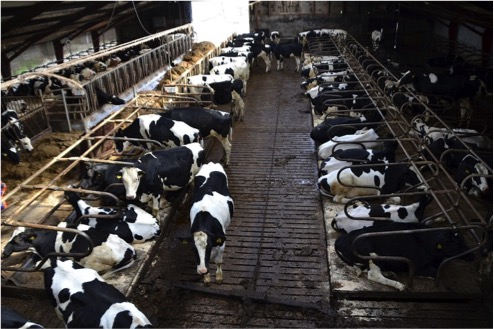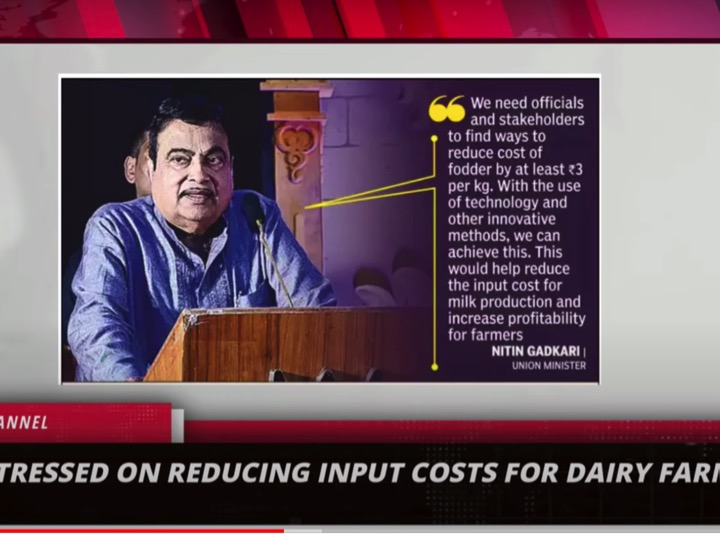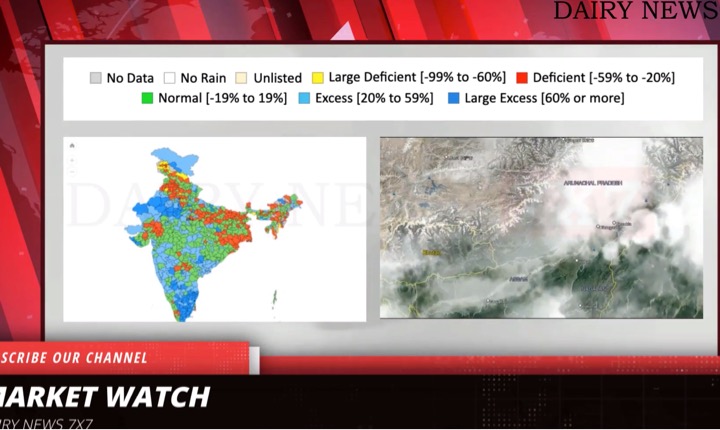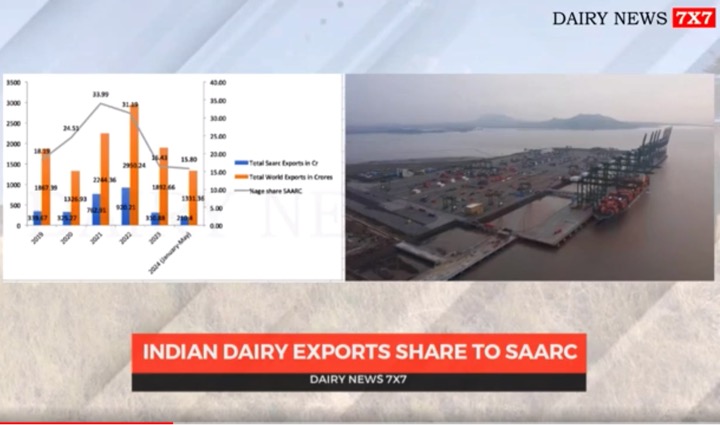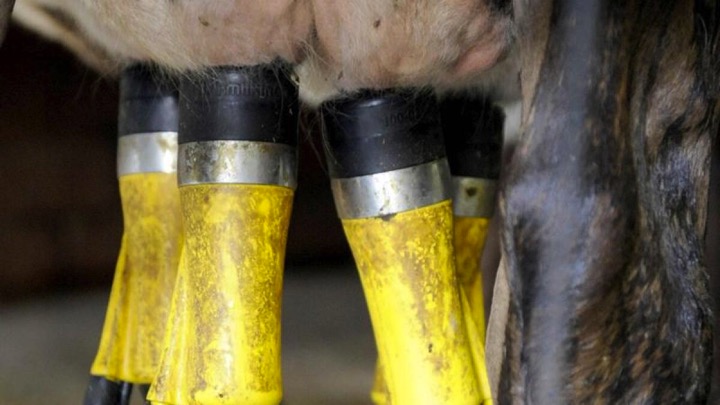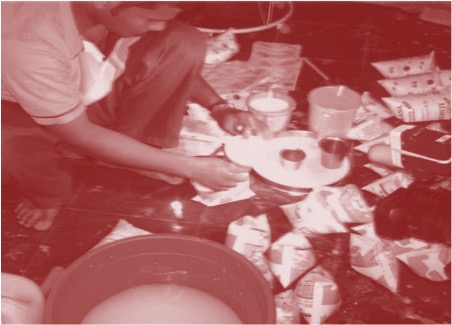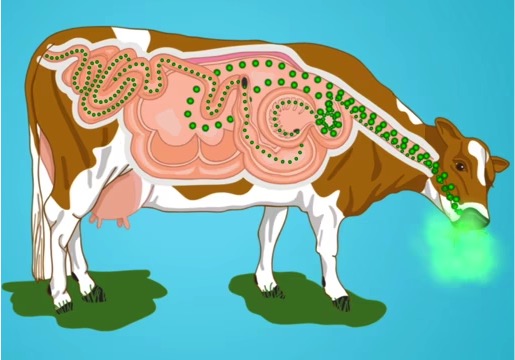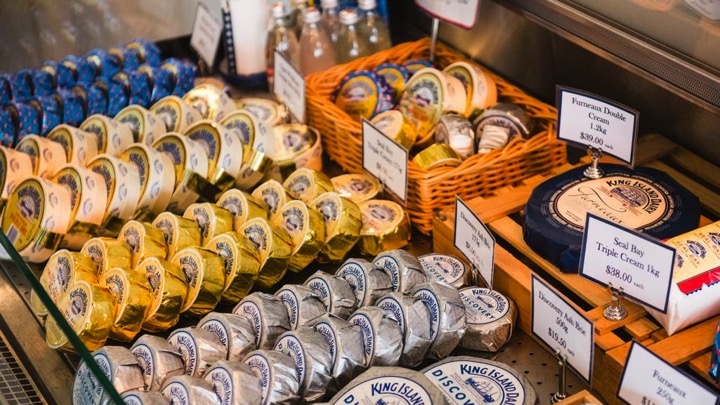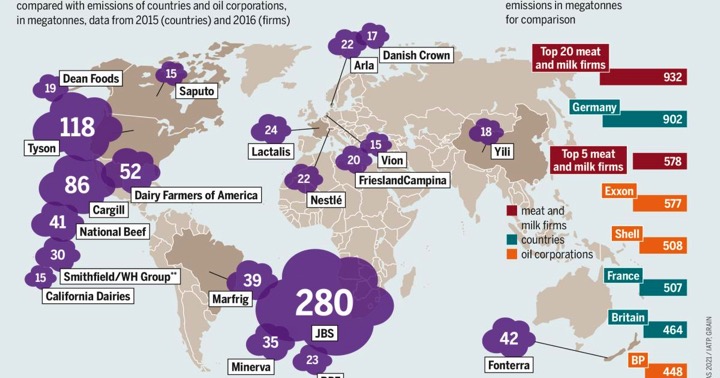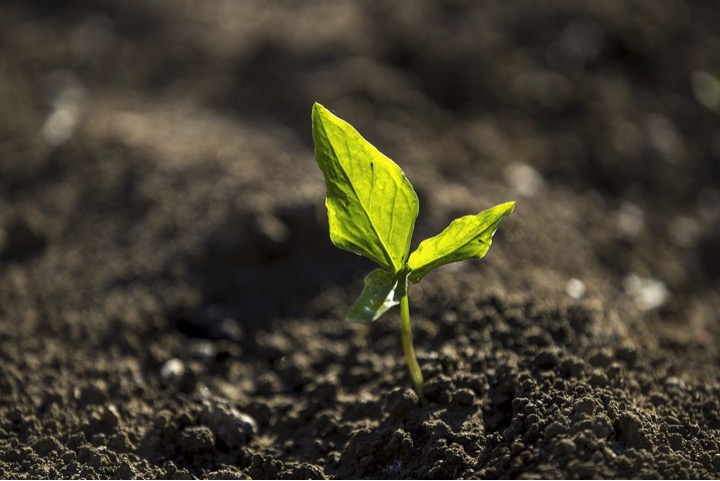China’s anti-subsidy probe of dairy imports from the European Union comes at a time when the local industry is on its knees.
Limiting shipments from the EU could relieve some pressure on farmers, but the quantities targeted are small and domestic conditions have been worsening for quite a while. The market is grappling with excess production capacity built up over years, and a slump in demand due to the slowing economy that’s having an outsized impact on pricier foods.
China’s dairy sector is facing the most severe challenge since 2008, Gao Fei, chief executive officer of China Mengniu Dairy Co., said in July, according to a report in local media. That was the year when milk contaminated with melamine led to the deaths of several babies, sickened hundreds of thousands and destroyed the industry’s reputation.
Dairy isn’t central to the typical Chinese diet. Milk only became a kitchen staple this century and many still consider cheese a Western luxury. Developing the taste for dairy in a country of more than a billion people represents a rare opportunity for growth that firms, both foreign and domestic, have been keen to seize.
But that’s come to a juddering halt. Milk prices have dropped continuously for more than two years, according to the farm ministry. Some 80% of farmers are now loss-making, by one estimate, and producers are culling more cows than usual. The industry is also looking at new avenues of demand, like churning more milk into cheese, as well as scouring export markets for buyers to soak up the domestic glut.
In that context, curbing overseas supplies makes sense, and the EU is China’s second-biggest source of foreign dairy after New Zealand.
But Beijing’s measures only target about 16% of the EU’s dairy sales to China, or around 4% of total imports, according to an assessment of EU and Chinese data. And in any case, China’s dairy imports were already falling. They dropped 14% on year in the first seven months of 2024, while exports surged 27% over the period, according to government data.
Melamine Trauma
As the industry slowly recovered from the melamine trauma, Beijing turned to its usual playbook for commodities it lacks, pushing for more domestic output to cut dependence on imports and capture rising consumption for its own farmers.
“The simplest way to put it is that China over-invested in production and then consumers down-shifted on demand,” said Yifan Li, head of Dairy Asia at StoneX Group Inc.
Chinese milk production has surged 40% in the past decade, creating massive oversupply as the economy struggles to regain its footing and consumption shrinks. That had already forced a reassessment among exporters even before China’s launched its latest action, which is widely regarded as a tit-for-tat response to the bloc’s tariffs on Chinese goods.
Although Beijing’s measures are so far limited in scope, they’ve stirred worries among traders that more punitive actions could be on the cards, which may have a bigger impact on trade than intended, Li said.
Danish dairy firm Arla Foods AMBA, for one, has had to become more realistic about the opportunities offered by China, Chief Executive Officer Peder Tuborgh said at an online earnings briefing last week. The company has downgraded China’s importance as it becomes more of a niche player in the market, he said.
Other companies that set up shop in Asia to sell EU dairy to China are now turning to hawking Chinese produce to countries such as Pakistan and Nigeria, according to people familiar with the trade, who asked not to be named because they aren’t authorized to speak to the media.
On the Wire
China will start an anti-dumping probe into rapeseed imports from Canada, with trade tensions escalating after Justin Trudeau’s government imposed tariffs on Chinese-made electric vehicles, steel and aluminum.
Turkey is working toward teaming up with China to process a deposit of rare earth elements, a potential partnership that could make the country more appealing to Chinese manufacturers of electric vehicles and batteries.
Money managers yanked billions out of a BlackRock exchange-traded fund that buys emerging market stocks as mounting evidence of a weakening Chinese economy pushed investors to dump the nation’s equities.


